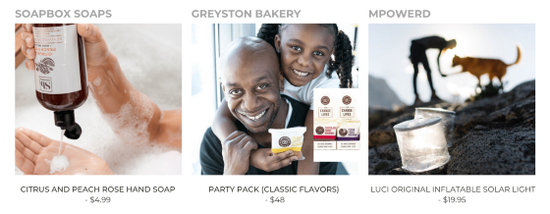So What is a Social Enterprise, anyway?Social enterprise, mission-driven business, sustainable business, impact-driven business, ethical business — these are just a handful of terms you may have heard as business as a force for good is on the rise. While the split between profit-driven businesses and do-good business used to be rather cut and dry, there are more and more companies that seem to be operating in the grey area.
So how do you determine if a business is worth supporting with your hard-earned dollars or if they are just using impact as a marketing ploy? Here are several areas where businesses are making an impact — and what to look out for. Employment & LaborPeople are at the center of most businesses, and therefore an impact model should likely factor in the people involved in the company and beyond. This can look like many different things: employing underserved or vulnerable communities, channeling the profits into training programs for underserved populations, or even upping the standards for employees in sectors, like fashion, where workers are notoriously underpaid and employed in unsafe conditions. It can also mean amplifying the message and work of populations that are often overlooked or underrepresented, like The Citizenry, which curates and features artisan-made home goods. Of note, it doesn’t have to be a big company employing lots of people to be relevant to this conversation, I love supporting small, women-owned businesses like Coco Bakes, an LA-based company that thoughtfully produces gluten-free and allergen-friendly baked goods.
|
When I am evaluating if a brand is sustainable,...I dive a layer deeper than the marketing lingo used on the company’s homepage. |
When I am evaluating if a brand is truly sustainable, ethical, or mission-driven, I always like to dive a layer deeper than the marketing lingo used on the company’s homepage. Asking questions, digging into employment, sustainability, partnerships, logistics, and more will allow you to determine if a brand is making an impact. And no brand is perfect — if you are selling a product, you are likely making an environmental impact. Rather I focus on the values of the brand and if they are genuinely pushing the industry forward in a positive way, with clear goals on how to continue building towards a more sustainable and just future.
To browse more social enterprises making waves in employment opportunity, sustainability and circular partnerships check out toasting good’s brand directory. Here are a few products we love from social enterprises creating impact in the areas Sara’s shared above:
SoapBox Soaps: For every soap product purchased, Soapbox donates one bar to a community without access to basic hygiene tools.
Greyston Bakery: Greyston operates on an Open Hiring policy, making it possible for those who face traditional barriers to employment to find meaningful work.
MPOWERD solar light: MPOWERD is committed to making renewable energy usage widely accessible. They also donate a significant amount of product to communities rebuilding after natural disasters.
Greyston Bakery: Greyston operates on an Open Hiring policy, making it possible for those who face traditional barriers to employment to find meaningful work.
MPOWERD solar light: MPOWERD is committed to making renewable energy usage widely accessible. They also donate a significant amount of product to communities rebuilding after natural disasters.
2 Comments
Leave a Reply.
Authors
Mirah Alix
Carmen Dahlberg
Karen Mac
Sara Weinreb
Mikaela Clark
Archives
September 2019
August 2019
June 2019





 RSS Feed
RSS Feed
